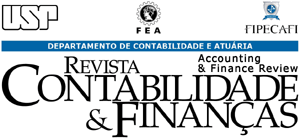The present study aimed to document the effects of financial constraints on the negative relationship between cash flow and external funds, a phenomenon associated with the Pecking Order Theory. This theory suggests that companies subject to more expensive external funds (financially constrained firms) should demonstrate a stronger negative relationship with cash flow than companies subject to minor financial frictions (financially unconstrained firms). The results indicate that the external funds of constrained firms consistently present less negative sensitivity to cash flow compared with those of unconstrained companies. Additionally, the internal funds of constrained companies demonstrate a positive sensitivity to cash flow, whereas those of unconstrained companies do not show any such significant behavior. These results are in accordance with the findings of Almeida and Campello (2010), who suggest the following: first, because of the endogenous nature of investment decisions in constrained companies, the complementary relationship between internal and external funds prevails over the substitutive effects suggested by the Pecking Order Theory; and second, the negative relationship between cash flow and external funds cannot be interpreted as evidence of costly external funds and therefore does not corroborate the Pecking Order Theory.
financial constraint; pecking order; cash policy; debt policy; capital structure









